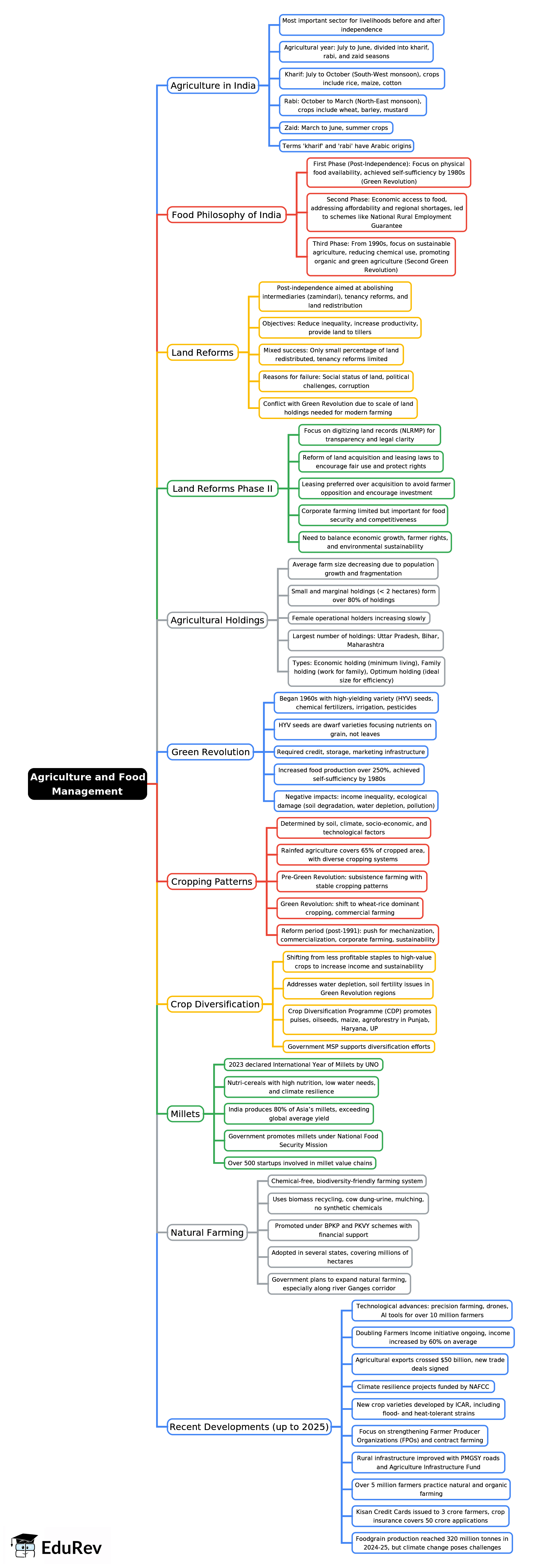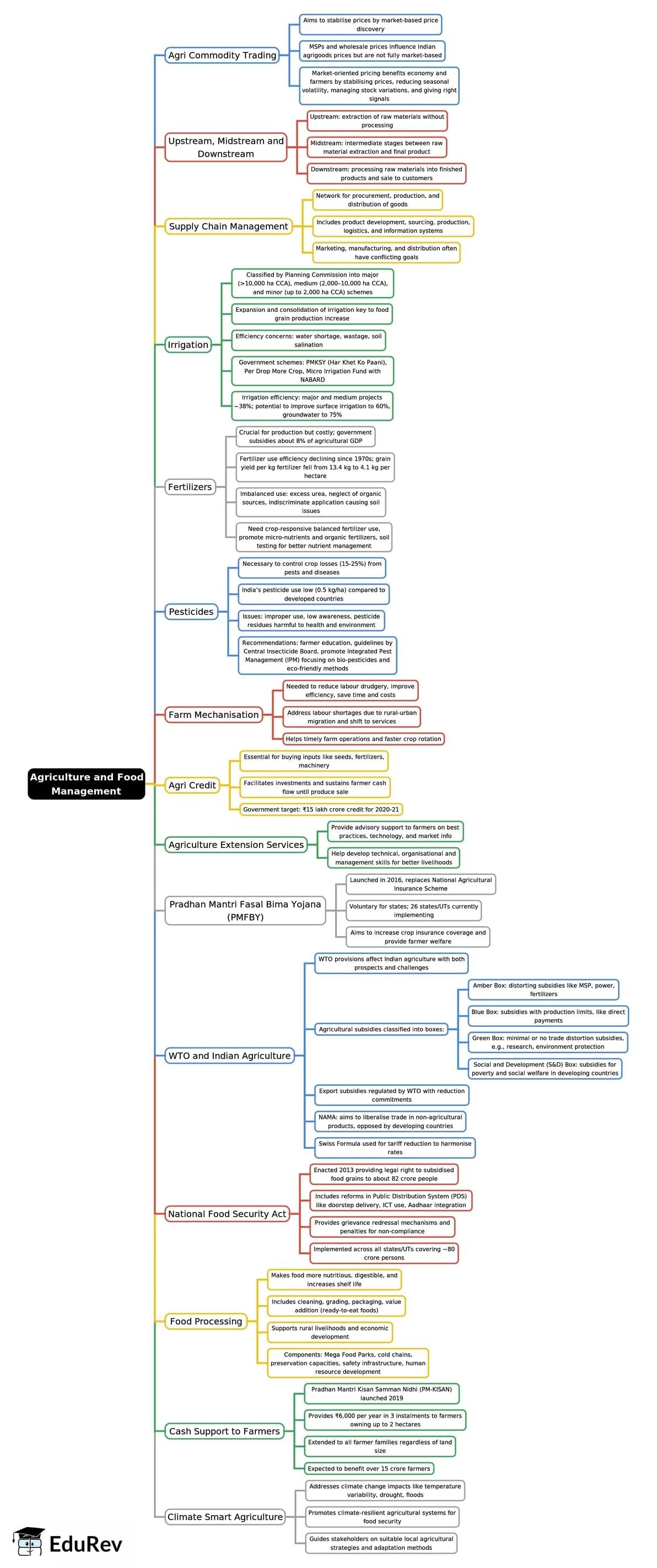UPSC Exam > UPSC Notes > Indian Economy for UPSC CSE > Mind Map: Agriculture and Food Management
Mind Map: Agriculture and Food Management | Indian Economy for UPSC CSE PDF Download
Agriculture and Food Management - 1

Agriculture and Food Management - 2

The document Mind Map: Agriculture and Food Management | Indian Economy for UPSC CSE is a part of the UPSC Course Indian Economy for UPSC CSE.
All you need of UPSC at this link: UPSC
|
108 videos|425 docs|128 tests
|
FAQs on Mind Map: Agriculture and Food Management - Indian Economy for UPSC CSE
| 1. What is the significance of sustainable agriculture in food management? |  |
Ans. Sustainable agriculture plays a crucial role in food management as it aims to meet current food needs without compromising the ability of future generations to meet theirs. It emphasizes practices that are environmentally friendly, economically viable, and socially responsible. By promoting biodiversity, soil health, and efficient resource use, sustainable agriculture helps in reducing dependency on chemical inputs, minimizing environmental degradation, and ensuring food security.
| 2. What are the major challenges faced in agricultural production today? |  |
Ans. The major challenges in agricultural production include climate change, which leads to unpredictable weather patterns and affects crop yields; soil degradation due to overuse and poor management practices; water scarcity, making irrigation difficult; and the rising costs of inputs like seeds and fertilizers. Additionally, the need to feed a growing population adds pressure on agricultural systems, demanding increased productivity without compromising sustainability.
| 3. How does food management contribute to reducing food waste? |  |
Ans. Food management contributes to reducing food waste by implementing strategies that ensure efficient supply chain operations, from production to consumption. This includes better inventory management, improved storage techniques, and consumer education on food preservation. By optimizing these processes, food management helps to minimize spoilage and ensures that surplus food can be redirected to those in need, thus promoting food security.
| 4. What role does technology play in modern agriculture and food management? |  |
Ans. Technology plays a transformative role in modern agriculture and food management by enhancing productivity and efficiency. Innovations such as precision agriculture, which uses GPS and IoT devices, enable farmers to monitor crop health and optimize resource use. Additionally, data analytics helps in making informed decisions, while advancements in biotechnology can lead to the development of resilient crop varieties. Overall, technology facilitates smarter farming practices and improves food supply chain management.
| 5. What are the implications of government policies on agriculture and food management? |  |
Ans. Government policies significantly influence agriculture and food management by establishing regulations, subsidies, and support programs. Effective policies can promote sustainable practices, ensure fair pricing for farmers, and enhance food security. Conversely, poorly designed policies may lead to market distortions, over-reliance on certain crops, and environmental harm. Therefore, it is essential for policymakers to consider the long-term impacts of agricultural policies on sustainability and food systems.
Related Searches





















